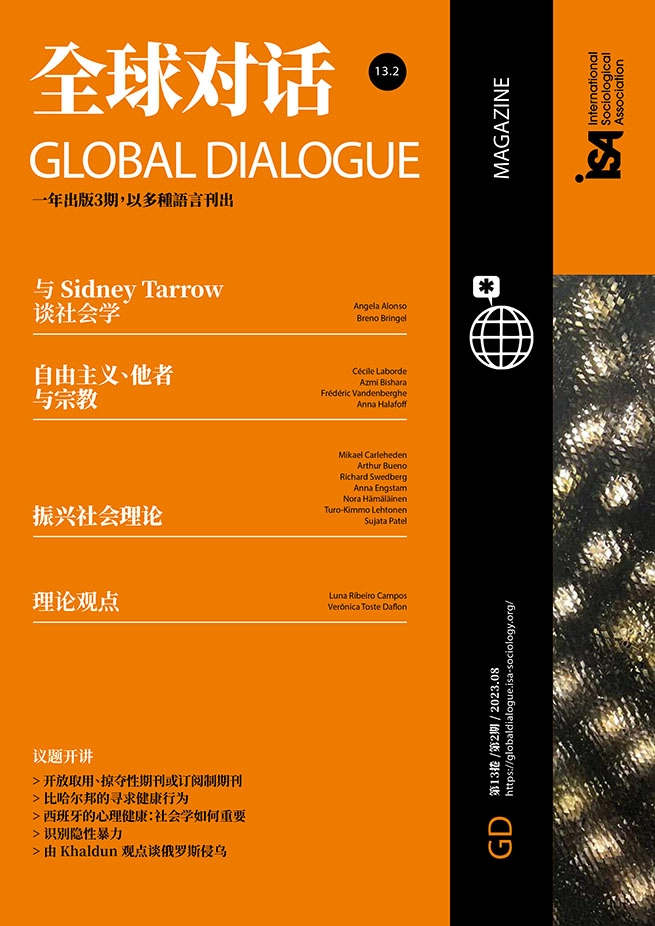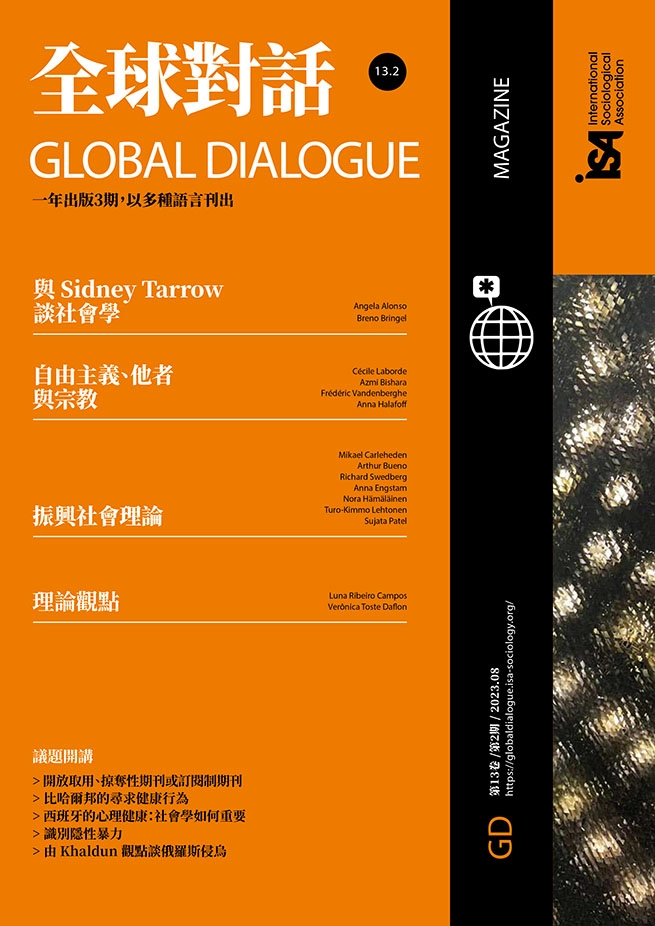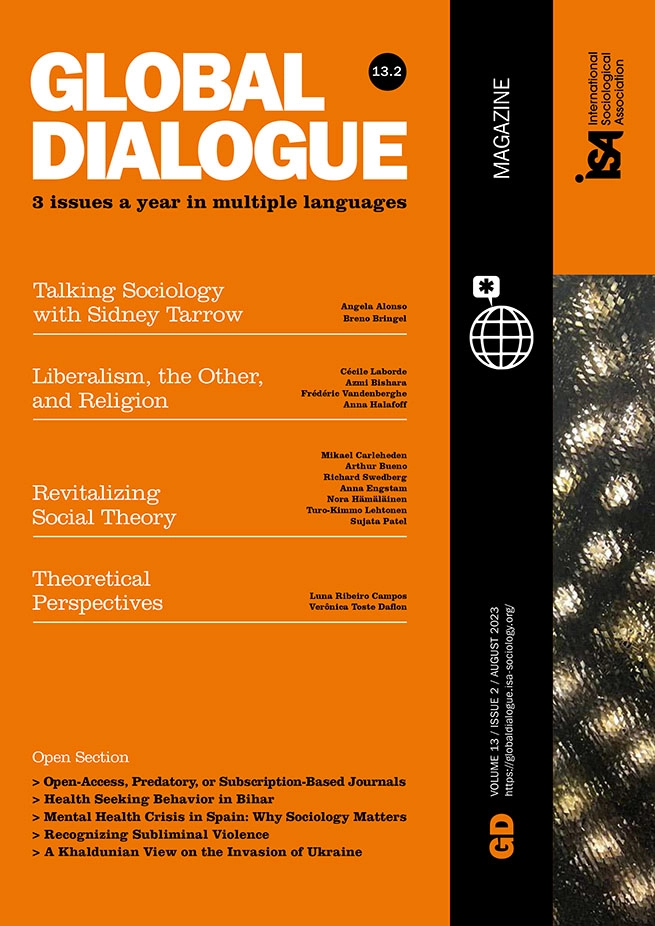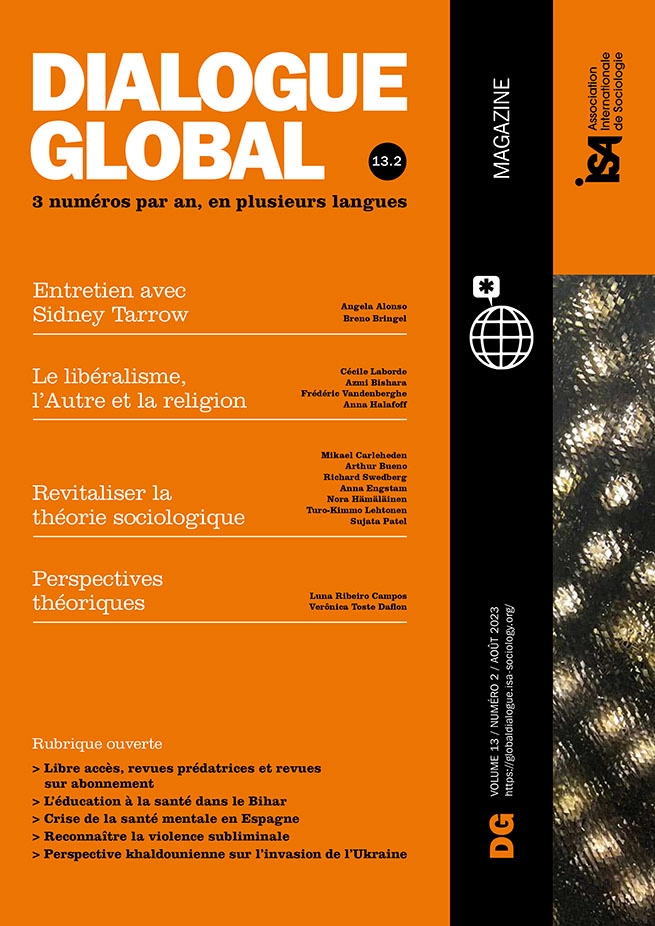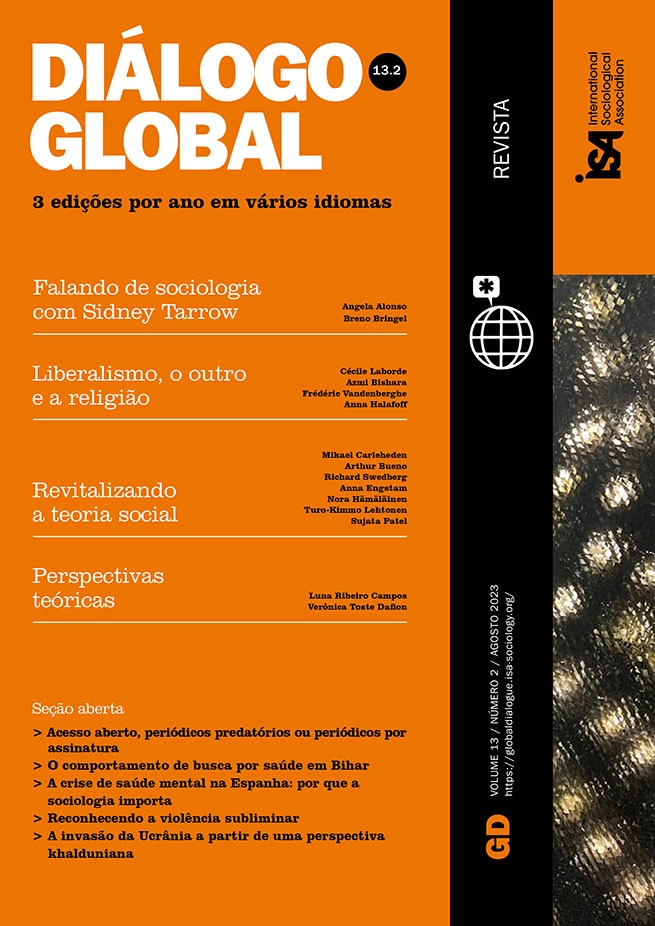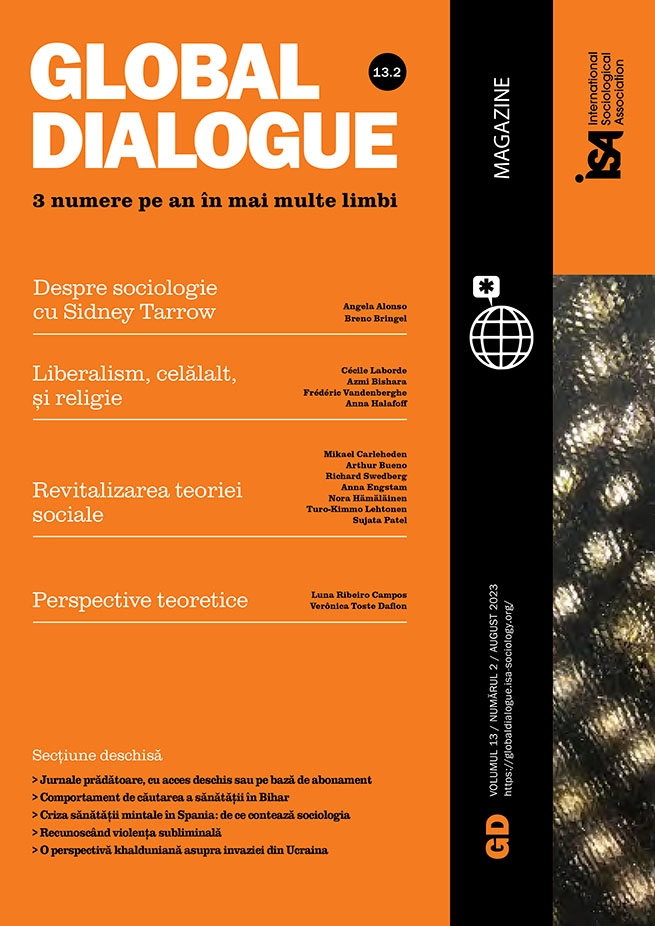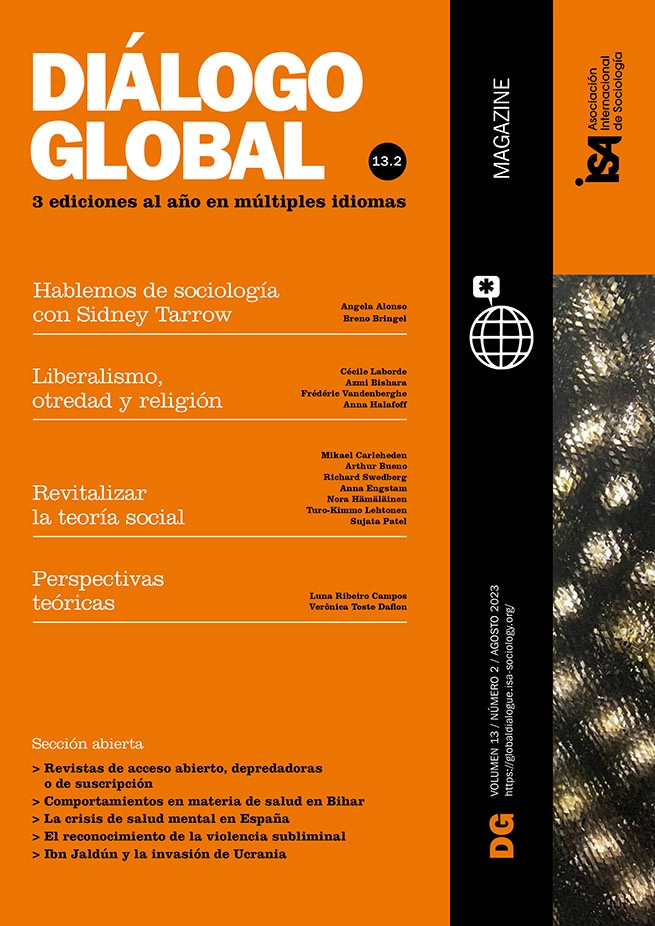Some of the most influential trends in contemporary sociology have converged around the concept of practice (Schatzki et al. 2000). To be sure, their novelty does not lie in the focus on this theme itself. In the long-standing debates on agency and structure that marked mid-twentieth-century sociology, this concept played a central role and already involved a shift from the meaning that “praxis” had in Marxism. Rather than pointing towards forms of revolutionary action to be carried out by the proletariat, theorists like Bourdieu or Giddens regarded practice in more politically modest but also more far-reaching terms. While still located at the crossroads of social reproduction and social transformation, practice did not entail the radical overthrowing of the capitalist system but an ongoing, everyday process of internalization and externalization of social structures.
However, the next generation of sociologists deemed that such approaches conceive of practice in much too narrow terms. As they saw it, the analysis of actions as mostly unreflected actualizations of social structures tended to marginalize agency, purveying an “over-integrated” view of individuals (Archer 1982) and ultimately depicting them as “cultural dopes” (Boltanski 2011). It also involved a fundamental epistemological asymmetry, as the sociologist was given the task of uncovering structural truths that the natives would not be able to recognize. Against such a view, authors like Latour and Boltanski highlighted the agency of non-humans and the reflexive capacities of humans. They stressed how one should learn from and enter into discussion with them, rather than bring enlightenment from outside and above. The very notion of structure was thereby called into question. Categories like “society” or “capitalism,” once supposed to unveil the hidden logics of practices, in fact explained very little: they simply saved one the trouble of following the ways in which the actors, from situation to situation, actively connect to each other.
The paradox of practice
This step was largely understood as a thrust for democratization. By rejecting previous conceptions of practice, the new sociologies also advanced a new politics radically supposed to proceed from the bottom up. In fact, how could one deny that these approaches took actors more seriously than the preceding ones? Who could object to recognizing the active and reflective capacities of agents, or to balancing the power relations between the analyst and the analyzed?
Following actors, however, can be an unsettling experience. Since the 1980s and especially in the last two decades, we have seen complaints about the quality of our democracies multiply. The concentration of power and wealth has reached such levels that, in a recent article, Chancel and Piketty claim that “early 21st century neocolonial capitalism involves levels of inequality similar to those of early 20th century colonial capitalism.” Not to mention the issue of climate change, whose solution is delayed with each new international summit despite the broad consensus about its causes. If there is a problem here – and there is – it cannot be said to amount to a lack of reflexivity!
The category of practice thus seems to be caught in a paradox. The more one underscores the multiplication of agencies and the actors’ reflexive capacities, the more one appears to confront a world that turns deaf ears to our demands, blocks our efforts to transform it, and places us in precarious conditions (as each new generation of sociologists has become increasingly aware in their own lives). While this is certainly not the product of social theorists working within the confines of the discipline, it does make one think about the political implications of our concepts of practice. How are we not to consider that, after all, we are dealing with powerful systems or structures? How can we deny that such realities, built by ourselves, are endowed with logics that escape us? Who could, reflexively, ask for more of the same?
The logic of things
We seem to be led, inadvertently, back to social structures – and their apparent autonomy, their veiled mechanisms, their unconscious motives. Yet to merely restate the theoretical alternative between agency and structure, advocating for one against the other, would be a misstep. For their opposition does not pertain to the “things of logic” but to the “logic of things.” The ever-recurring hiatus between agency and structure is not a mere epistemological error but a product of the workings of social reality itself. This is precisely what allows us to agree with both sides. More than simply having the capacity to be active, reflexive, dynamic, and multiple, this is how we are urged to be. But the mysterious thing is that, at the same time, we are confronted with a world that is largely alien and even hostile to such capacities. Paradoxically, it is by being continuously asked to make our own history that we become unable to do so. We become passive through our own activity. We are reflexive and dopes.
To this strange logic, Marx gave the name of “fetishism,” and Lukács, that of “reification.” Should we, then, go back even further in history, returning to their concepts of praxis? Yes, but perhaps not in the same way. It is, in any case, crucial to retain one aspect: in this tradition, practice is fundamentally something to be realized. It does not consist simply in the continuous internalization and externalization of social structures, regardless of the outcome; nor does it point to the affirmation of agential capacities given in advance. Rather, such capacities are understood primarily as potentials whose actualization is hindered or blocked under present conditions. This is why the dichotomy between agency and structure cannot be resolved theoretically, by abandoning either one notion or the other. It must be overcome in reality itself, in the very “logic of things.” Here, practice is synonymous with struggle, with collective transformation, with emancipation. The mediation between agency and structure is not something to be merely described, but to be politically accomplished.
Passivity and power
To adopt this conception does not mean abandoning altogether the features highlighted by recent sociologies of practice. Rather, it leads one to conceive of them differently. It is true that failing to recognize the active capacities of actors can lead to a self-imposed powerlessness before a “System” that invariably prevails. As Latour once said about the idea of capitalism: “If you keep failing and don’t change, it does not mean you are facing an invincible monster, it means you like, you enjoy, you love, to be defeated by a monster.” And yet, to deny that there are systemic processes which turn us (partially) into dopes leads one to the same condition, only by a different path. If each time we are confronted with systemic blockages we tell ourselves that there is still activity, still resistance, still practice, then we end up cheapening these very notions. They become ever thinner and ever politically weaker: the less we ask for, the less we get, and the less we are able to ask for next time.
Whether by assuming an all-powerful system or by denying its existence, one thus ends up in a position of powerlessness and with a sense of defeat. The problem does not lie in the notions of structure or agency themselves, but in the fact that they are treated as static entities: one of them is presented as always already given, the other as something negligible. In contrast, what praxis does is precisely to acknowledge, to articulate, and to transform this opposition.
As I have argued elsewhere, an important moment for emancipatory movements occurs with the recognition that, despite every appearance of individual activity, one is subjected to structural logics beyond one’s control. Against the idea of pre-given agency, we accept being passive “cogs in a machine.” But the process must not stop there. Instead of leading to a sense of defeat, the acknowledgment of our bodies’ vulnerability to structural logics can bring to the fore precisely the material power of these bodies – without which, after all, those logics cannot exist. To paraphrase Marx: at the basis of (capital’s) systemic domination lies the living (labor) power of human and non-human beings. Once acknowledged and self-organized, this power can be set against existing structures, empowering new ones. Agency comes back. However, it no longer appears as the act of an isolated actor, but as the expression of a collective living force grounded in a shared condition of vulnerability. We can only be active if we recognize our passivity. Practice becomes an end precisely because one acknowledges that it can end.
References:
Archer, M. (1982) “Morphogenesis Versus Structuration: On Combining Structure and Action.” British Journal of Sociology 33(4): 455–83.
Boltanski, L. (2011) On Critique: A Sociology of Emancipation. Cambridge: Polity Press.
Schatzki, T.R., Knorr Cetina, K., von Savigny, E. (eds.) (2000) The Practice Turn in Contemporary Theory. London: Routledge.
Arthur Bueno, University of Passau and Goethe University Frankfurt, Germany <arthur.bueno@uni-passau.de> / Twitter: @art_bueno








